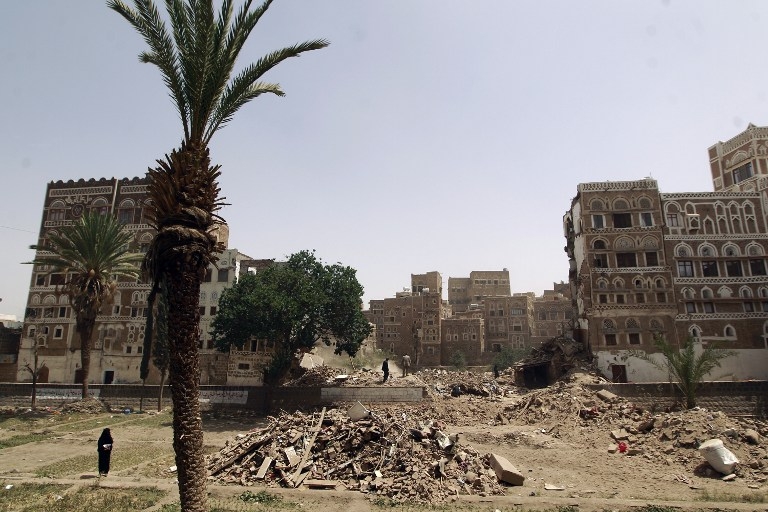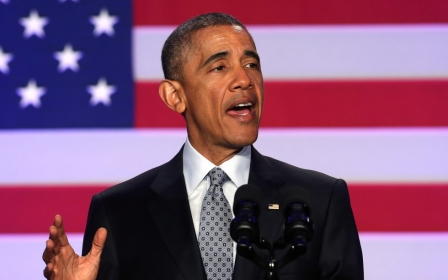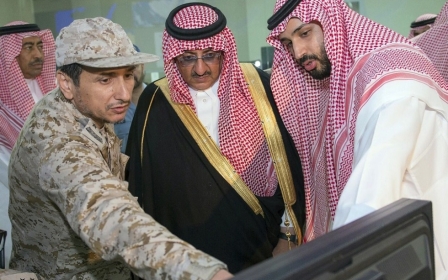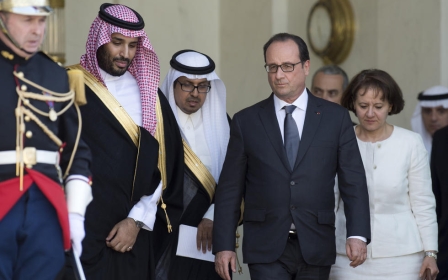For Middle East to survive, Saudi and Iran must put their differences aside

Last month, two delegations, one from Yemen's Riyadh-based government in exile and one from the allegedly Iranian-backed Houthi militants, sat in separate Swiss conference rooms not speaking to one another. Communiqués were sent by a UN special envoy from one room to another until even that basic communication broke down. Two sets of people were negotiating their cause, supported by two opposing regional powers which have, in turn, manipulated Yemen’s conflict for their own political ends.
Ever-growing tension between Saudi Arabia and Iran is sending the rest of the Middle East into a cycle of endless conflict. Their proxy wars are causing continued damage and instability. In Iraq, Syria and now Yemen, negotiation is made impossible by the fact that the parties fighting on the ground are not the only interested players. So conflicts spiral and become increasingly intractable. Despite a comprehensive deal signed on Iran’s nuclear programme on Wednesday, there are signs that the Saudi-Iranian proxy wars could soon spread to the countries’ own domestic territories.
Saudi’s ongoing bombing campaign against Yemen’s Houthi militants has been ostensibly waged to restore the country’s elected government but was also clearly intended as a warning message to Iran and a reassertion of Saudi’s martial power. By taking the fight to Iran’s perceived proxies, Saudi was sending a message: "Iran may be on the ascent but we're not scared of confrontation and will act to protect our interests." However, as yet the war has failed in achieving either the return of political stability in the country or the rebalancing of power in the region.
The gamble has failed. The military action has turned a once broadly supportive neighbouring population into a belligerent and increasingly desperate people. Not only is the humanitarian situation already reaching Syrian levels, but this rivalry is introducing a new sectarian twist to an already complicated internal conflict.
The conflict that now involves both Saudi and Iran could lead to an all-out civil war, which will further destabilise the region. Yet, as the war in Yemen enters its fourth month, Saudi Arabia and its allies including the UK and US are failing to quell this conflict and mitigate its disastrous effects. Instead, one of the world’s poorest countries is being left to disintegrate.
But what if the two Muslim powers were to approach this differently? After all a US-Iranian nuclear deal, until recently, seemed like an impossible feat. Why can't Saudi and Iran do the same?
If Iran's recently elected president can see the potential in reaching a deal with its traditional sworn enemy, the US then might realise that a peace agreement with Saudi could give Iran back its long-lost recognition as a cooperative state.
To further Iran's international position and take the next steps in its engagement with the wider world the Islamic republic must allay fears over regional conflict. By doing so Iran would defuse the political climate in the Middle East, improve the country's investment position and help to secure its economy in the long-term.
From a Saudi perspective the potential of engagement now could have multiple benefits. Firstly, by securing peace along its southern border - currently being hit by Houthi rockets - the newly enthroned King Salman would gain a significant victory both internally and externally. Crucially by initiating talks with Iran, Saudi would immediately send a powerful and very real message to its discontented and increasingly restive Shia minority.
Both powers are currently facing the same critical threat of Islamic extremism embodied in Islamic State (IS) and al-Qaeda. This growing force represents the most pertinent challenge to either state's interest and structural integrity.
With both Sunni and Shia populations facing a similar threat from the self-proclaimed Islamic State, the coming together of these two leading powers could help diffuse the causes that drive young Muslims to join extremist groups. Their collaboration and the resulting easing of regional tension would have a direct impact on their anti-terrorism capabilities. The threat facing the region is very real; it is time we focused on making a peace where we can tackle the real problems we face.
Western perspectives on international affairs are at present understandably preoccupied with two key issues: migration and Islamic extremism. However, by pursing national policies which foster the situation in which both those problems are exacerbated, Western governments are undermining their own interests.
The British government’s tacit support for Saudi's anti-Iranian aggression in Yemen is illustrative of its failure to understand that migrants are driven to seek sanctuary by the dire situations in their home countries. Similarly by failing to push for de-escalation of the tensions between the two Muslim superpowers, Western governments are allowing the circumstances that will give Islamic State and their ilk the chance to thrive.
A policy of foresight would work to leverage Western positions of influence to bring about circumstances that minimise these ongoing threats to the West. Needless to say, this would simultaneously go a long way to improving the situation for the many millions of people in the region.
- Jamila Ali-Rajaa is a Yemeni diplomat and member of Yemen's National Dialogue.
The views expressed in this article belong to the author and do not necessarily reflect the editorial policy of Middle East Eye
Photo: A view of the destruction in the UNESCO-listed heritage site in the old city of Yemeni capital Sanaa, on 15 June (AFP)
New MEE newsletter: Jerusalem Dispatch
Sign up to get the latest insights and analysis on Israel-Palestine, alongside Turkey Unpacked and other MEE newsletters
Middle East Eye delivers independent and unrivalled coverage and analysis of the Middle East, North Africa and beyond. To learn more about republishing this content and the associated fees, please fill out this form. More about MEE can be found here.





